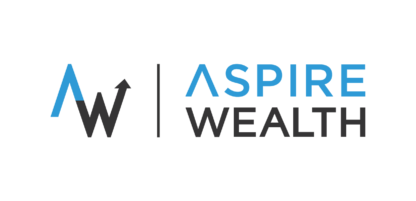I think it’s safe to say most of us are happy to see 2020 in the rear view mirror. It’s the start of a new year, which means many people are enthusiastic to work towards a better version of themselves. With that in mind, what can you do to ensure you’re working towards a healthier financial life? This week we’re going to cover a number of tasks that can help you move towards that healthier financial life.
Savings Plan
It’s important to ensure you’re sticking to a savings plan. When you begin saving, and how much you save, is going to have an immense impact on your ability to reach your goals and retirement. Not many people are aware that you actually have until the April 15 tax deadline to make previous year contributions to an IRA. This includes both traditional and Roth IRAs (assuming that you qualify for an IRA contribution tax deduction and you’re not over the limit to contribute to a Roth IRA).
For example, assuming you are eligible, you can make a 2020 Roth IRA contribution in 2021 anytime until April 15th. This could be a good option if you found yourself with some extra savings after the end of the year (maybe from a year-end bonus). You can also consider making a traditional IRA contribution which would allow for additional tax deduction on your previous year’s taxes. You can check out our recent blog on IRAs vs Roth IRAs for more details on which may be a better fit for your unique situation.
Prioritize Debt
Some reports claim that up to 80% of Americans are carrying some amount of debt. Assuming you fall into this category, as most of us do, it’s important to understand how to prioritize your debt. There are a lot of factors to consider when paying off debt, but it’s very important to prioritize your high interest debt. This could include debt such as a high interest car loan, credit card debt, or a cash advance loan. In theory, these high interest payments should take priority over our debt tied to much lower interest rates such as mortgages and student loans. You’re saving the most money, from an interest perspective, by paying off your debt tied to high APRs first.
We are experiencing a historically low interest rate environment allowing us the opportunity to borrow money at a low cost. When considering your debt with low interest rates, it may make sense to continue paying the minimum payments, rather than making additional principal payments, and invest the remainder of your money inline with your risk tolerance.
For example, assume you’re carrying a 15-year mortgage with a 3% interest rate. Rather than paying additional payments towards the principal, which is saving you 3% in interest on whatever extra payments you made, you could invest that money in something that you would expect to make more than 3% on average. In the end, you could be net better off by saving more in an investment account than by making the additional principal payments. For more details about this, check out Part 1 and Part 2, The Truth Behind Mortgages and Debt in General.
Taxes
Lastly, you want to ensure you gather everything necessary for your taxes. It’s that time of year again, and unless you plan on filing for an extension, you’ll need to file your taxes by the deadline (April 15th). Starting in January you should begin receiving your tax documents, such as W-2s, 1099s, K-1s, etc… It’s important to work with a CPA or tax professional depending on your unique situation. If your situation is straightforward, maybe save the money and utilize cheap tax software to file on your own. If that’s not the case, it may be worth the money to find a tax professional that provides you with the peace of mind of knowing that your taxes were done correctly. The tax landscape can be tricky and confusing, making it imperative you take the correct steps to ensure accuracy.
While these are only a few of the items to be considered, it’s a good starting point to get your financial well-being on track. Don’t hesitate to reach out for any advice or guidance when it comes to any of these, or additional topics, as they pertain to finance.
To start the new year, we (Aspire Wealth) have decided to change up the schedule for our blogs and communications. Moving forward, you can expect to receive a monthly newsletter, updating you on current events and market updates, along with a new blog every other week. We’re excited for what the future will bring and we look forward to serving you in 2021 and beyond!
Ben Webster, CFP® and Derek Prusa, CFA, CFP®
Co-Founders and Owners of Aspire Wealth


